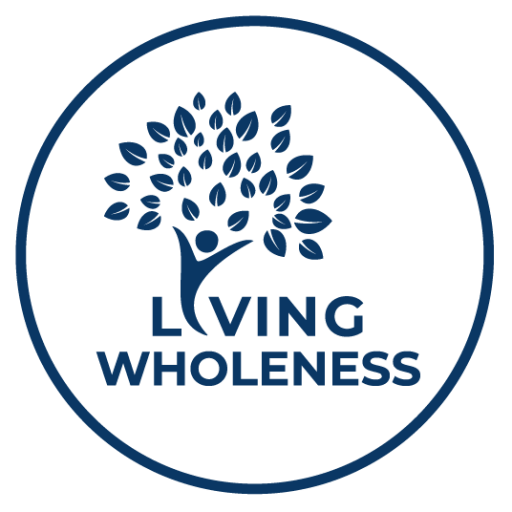Volition in the CWF Framework and Counseling Practice
By Jenny Oh
According to the Christian Wholeness Framework (CWF), volition resides within the Mind Circle, alongside thought, cognition, mood, and perception. Rather than being a singular faculty, volition represents an integrative function encompassing cognitive, motivational, emotional, and temperamental processes. It reflects a complex interplay of inner dynamics that shape an individual’s capacity for self-directed action.
In the context of counseling, volition refers to a client’s intrinsic ability and willingness to make decisions and act upon them. It signifies more than mere motivation; it embodies the transition from intention to sustained action. While motivation may initiate the desire for change, volition enables that desire to be transformed into consistent, purposeful behavior. It plays a pivotal role in therapy, influencing client engagement, goal adherence, and long-term transformation.
Clients exhibiting volitional behavior often experience a heightened sense of agency—they perceive themselves as active participants in shaping their own lives. Conversely, individuals with diminished volition may be acutely aware of their goals yet feel paralyzed in their ability to pursue them. This condition can be likened to functioning with a depleted fuel tank—possessing knowledge and intent, yet lacking the emotional or psychological energy to act. Several factors within the CWF’s circles, such as physical illness or poor sleep, can reduce volitional capacity.
In clinical psychology, extreme forms of diminished volition are observed in conditions such as avolition, a core symptom of disorders like schizophrenia and major depression. This profound lack of initiative or motivation can severely hinder daily functioning. Consequently, a central goal of therapy is to support clients in cultivating their volitional strength. Therapeutic techniques may include structured goal-setting, mindfulness practices, cognitive-behavioral strategies, and the development of self-efficacy—each aiming to reignite a client’s ability to choose and act.
Theological Reflections on Volition
Theologically, volition is rooted in the doctrine of free will—the God-given capacity to discern and choose between right and wrong. According to Dr. Steven R. Cook, “Volition tends the gate of our soul, determining what enters, its level of activity once inside, and the duration of its stay.” He argues that human consciousness is not passive but is actively shaped by our volitional decisions. Even subconscious acceptance of contradictory ideas may lead to cognitive dissonance and inner fragmentation, underscoring the vital role of volitional discernment.
In Christian anthropology, volition is not autonomous but influenced by reason (whether sound or flawed), emotion, life circumstances, and external coercion. While these forces shape the will, the Christian ideal is that volition be governed by the divine perspective, where God’s truth supersedes fluctuating human desires. This theological conviction affirms that all individuals—regardless of their psychological or emotional state—retain a fundamental ability to choose. Such an understanding is especially significant in counseling contexts, where clients often feel trapped in despair or helplessness. The belief that each person is created with inherent volitional capacity offers both hope and a pathway forward.
Augustine of Hippo, one of Christianity’s foundational theologians, regarded the will as the soul’s command center. He emphasized that God intended for the will and intellect to work in harmony, akin to a hand within a glove. For Augustine, the source of all human dysfunction lies in disordered will, and healing comes through the reordering of volition in alignment with divine love and truth. Restoration, then, involves not just intellectual assent but the transformation of the will—learning to desire rightly.
Biblical Insights into Volition
A compelling biblical example of impaired volition is found in the account of the man at the Pool of Bethesda (John 5:5–8). Afflicted for 38 years, the man is asked by Jesus, “Do you want to be made well?” Instead of answering directly, he offers an explanation rooted in helplessness: “I have no one to put me into the pool… another steps down before me.” This response reflects a perceived lack of agency—a resignation to circumstances beyond his control.
Jesus’ response is telling: “Take up your bed and walk.” The act of rising, initiated by the man’s will in obedience to Christ’s command, precedes the miracle. This passage illustrates that even the smallest volitional act—rooted in faith—can trigger profound transformation. Scripture frequently affirms that incremental steps of faith, even as small as a mustard seed, can lead to significant change. This biblical insight aligns with therapeutic principles that emphasize gradual progress, resilience, and the cumulative effect of small, intentional actions. The biblical narrative reinforces a central theological claim: human beings are created with the ability to choose. Even amid suffering, uncertainty, or psychological distress, volition remains a vital faculty. It empowers individuals to persevere, to engage in transformative processes, and to align their lives with truth and purpose. In both therapeutic and theological domains, the cultivation of volition is foundational to healing, growth, and spiritual maturity.

